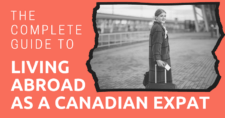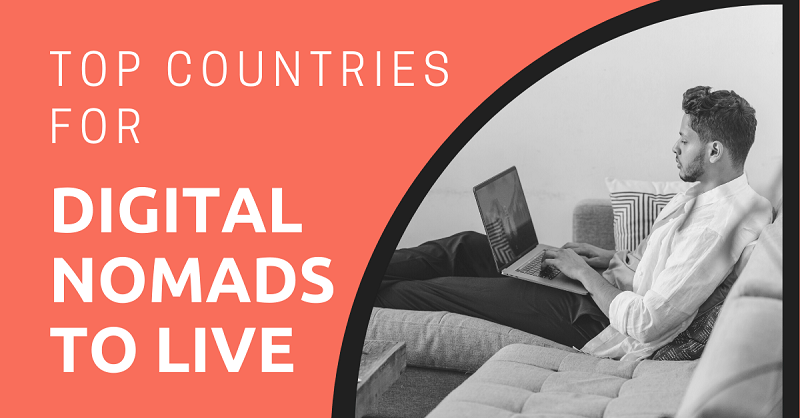
This article will take approximately 19 minutes to read. Don't have the time right now? No worries. Email the ad-free version of the article to yourself and read it later!
One of the main draws of being a digital nomad is the fact that it doesn’t tie you to a single country.
However, this does lead to a particular list of considerations when choosing the most suitable one to settle in.
While you can literally move to any country and work from your laptop as long as you have Internet access, not all countries are suitable for digital nomads. For example, it can be hard to move money around. Living costs can be too high. Or the visa requirements are too strict.
In this article, we’ll look at the seven best countries for digital nomads in 2025 based on cost of living and how easy it is to get a long-term visa to that country.
Before jumping into the list, let’s cover the definition of a digital nomad and look at the selection criteria we’ve used.
Disclaimer: This article may include links to products or services offered by ExpatDen's partners, which give us commissions when you click on them. Although this may influence how they appear in the text, we only recommend solutions that we would use in your situation. Read more in our Advertising Disclosure.
Contents
What is a Digital Nomad?
A digital nomad is a person who works online and, by extension, isn’t tied to a single place of business. It’s typical for a digital nomad to move around the world every few months or years depending on where they want to live.
Selection Criteria for Best Countries
To choose the best countries for digital nomads, we considered several factors. These are:
- living facilities
- cost of living
- access to services (specifically wifi)
- available visas applicable to this mode of working
- working conditions (such as living, local services, weather, etc.)
We won’t rely too heavily on numbers when discussing the countries. Instead, there will be a comparison chart below where you can look at specific stats related to each country. Hopefully, this should help you decide which is the most suitable country for your needs.
The 7 Best Countries for Digital Nomads
Considering the criteria above, here are the seven best countries for digital nomads in 2025. Some are quite popular with digital nomads, but each has its own appeal.
After all, it can be refreshing to live within a community of like-minded workers after traveling the world on your own.
Thailand
Thailand has long been a popular destination for backpackers and expats alike, and for good reason. The weather is great, there’s much to explore, and the scenery is amazing. After all, you want plenty to do when you’re not working, and this Southeast Asian country has it all.
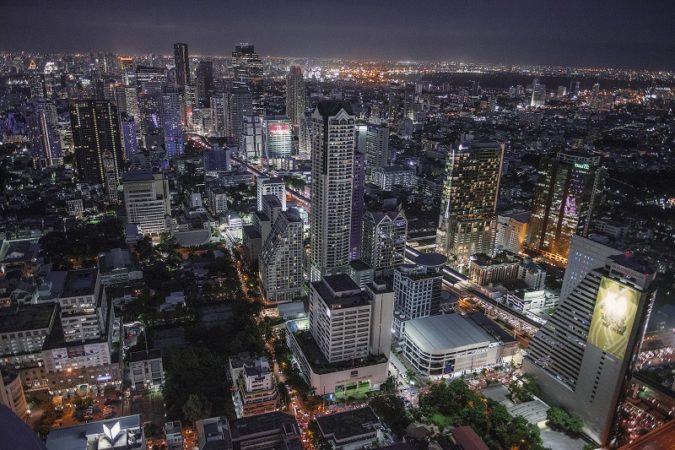
There are also plenty of suitable coffee shops, co-working spaces, and serviced offices for rent in Bangkok for digital nomads.
The cost of living is roughly 46 percent lower than in the United States, which is why Thailand appeals to digital nomads. This means you don’t have to use as much of your hard-earned money to keep yourself afloat and instead spend it on more interesting things.
Read more: Cost of Living in Thailand as an Expat: How Much Do You Need Per Month?
One of Thailand’s main draws for digital nomads is the range of places to stay. Generally, you’ll want to stick to larger cities such as Bangkok, Chiang Mai, Phuket, and Koh Samui. These have the largest expat communities and, generally, the best services.
It’s fairly easy to set up a life as a digital nomad in Thailand. The country is familiar with expats, and just over 27 percent of the population speaks English.
But when you live in a city that’s popular among digital nomads like Chiang Mai, Bangkok, Phuket, or Koh Samui, a majority of service providers can speak English. Sometimes, you also get an English contract too. Remember, Thailand is one of the most popular tourist destinations in the world. According to the Tourism Authority of Thailand, the country welcomed ~35 million international visitors in 2024.
In addition, in 2024, Thailand introduced a new visa for digital nomads called the Destination Thailand Visa. The requirement is very low. You just need to show that you have ~US$15,000 (THB 500,000) in your bank account and proof that you are currently a digital nomad by showing your portfolio or any freelance contract you have.
Because of various reasons from cost of living, infrastructure, visa, and more, Thailand is the number one choice in my opinion.
Related articles:
Georgia
Georgia is fast becoming a top choice for digital nomads. It doesn’t pop up on many people’s radars, but it’s made an effort in recent years to attract mobile workers.

One of the best things about living in Georgia is that if you are from the US, UK, EU, Australia, Canada, and much more, you can just stay in the country for 1 year without having to apply for a visa. You can check Wikipedia for a full list of countries.
This makes the country especially attractive for digital nomads.
The cost of living in Georgia is also very reasonable. Based on our own cost of living research in Tbilisi, you can live well in the capital with a budget of around ~US$1,500 a month. If your budget is closer to ~US$2,000 or more, you can enjoy a very comfortable lifestyle in the city center.
Georgia also has good amenities in its main cities. Tbilisi has become a hub for remote workers, with reliable wifi, plenty of cafes, and flexible rental options. Many hostels even come with co-working spaces inside, so you can live, work, and connect with other nomads all under the same roof.
Most expats choose Tbilisi, but Batumi is popular for its warmer climate, while Kutaisi offers a slower pace of life. All three cities have good international connections, and there are no restrictions if you work online for foreign clients.
On top of that, Georgia has one of the most favorable tax setups for freelancers and small business owners. By registering as an Individual Entrepreneur, you may qualify for a special status that reduces your tax rate to just 1% on eligible income. We covered this in more detail in our review of Gegidze, a company that helps expats set up and maintain their businesses in Georgia.
Croatia
Much like Georgia, Croatia is making an effort to land on more of the internet’s “best of” lists, becoming a favorite European holiday destination thanks to its stunning scenery and pleasant weather.
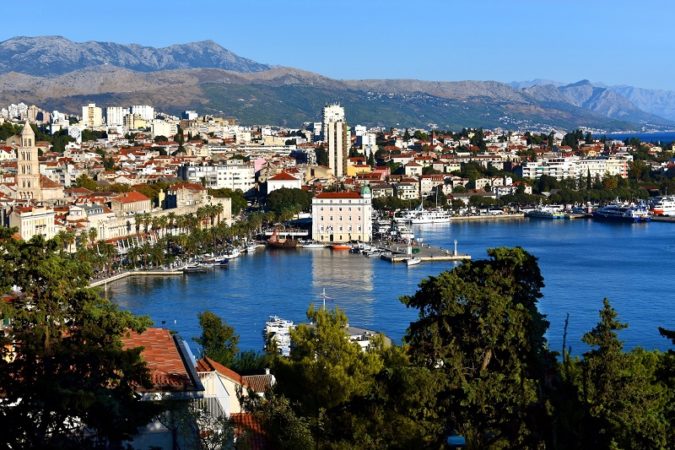
Croatia really seems to be emerging as a digital nomad haven right now. You can apply for a digital nomad residence permit that lets you stay in the country for up to 18 months, and that includes a possible six month extension if you apply at least 60 days before your initial permit ends.
The monthly income requirement is currently €3,295, or you can prove you have the equivalent in savings (around €39,540 for 12 months, or €59,310 for 18 months). If you’re bringing along family members, the requirement increases by 10 percent per person.
On the other hand, Croatia is still one of the more budget friendly options in Europe, making it comparably affordable even in tourist hotspots. For example, you need to have around US$1,500 to live here comfortably.
Many digital nomad communities are centered around cities like Zagreb, Split, Zadar, and Pula, which remain well connected and have plenty of English speakers and rental options.
English is widely used in these populated areas, and the rental market is flexible. Even short term leases for just a couple of weeks are available. You don’t need to be a Croatian citizen to rent, which makes setting up life here relatively easy.
Much like Georgia, Croatia is making an effort to get onto many of the Internet’s “best of” lists. It has quickly become a popular European holiday destination thanks to its amazing scenery and weather.
And, as with Georgia, you can apply for a digital nomad visa in Croatia. This permits you to stay in the country for up to a year, but it can be renewed for as many years as you’d like. The monthly income requirement for the visa is US$2,350 a month. You can bring family members with you, but you must have an extra US$90 a month for each.
On the flip side, Croatia is a slightly more expensive country to live in. It’s 39.2 percent cheaper than the U.S., but a monthly budget for a single person is around US$615. So, despite it being more expensive than Georgia, you still have roughly the same amount of spare money.
Most of its digital nomad communities focus on its larger cities such as Zagreb, Split, Zadar, and Pula. These are also its most tourist-heavy cities, which could be a good or bad thing.
Due to the growing tourist industry, English is widely spoken in populated areas. You’ll also find large expat communities here. Better yet, the rental market is easy to get into, and you can even rent properties for as little as two weeks.
You can even rent a property if you’re not a citizen, meaning it’s easy to set up a life as a digital nomad.
Indonesia
Bali, Indonesia has long been a popular destination for digital nomads because of its competitive cost of living. Its climate and scenery are big draws, and it has decent wifi and services for those working online.
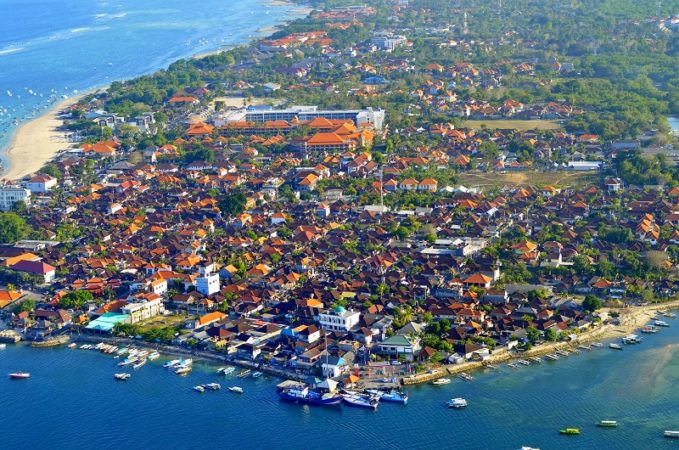
In April 2024, Indonesia introduced the Remote Worker Visa (E33G). It’s a one-year visa that let you live in Bali (or anywhere in Indonesia) while working remotely for a company outside Indonesia. You can stay for up to one year and apply to extend for a second year.
The financial requirement is also low. You just need to proof that you earn at least US$60,000 per year and a contract with a foreign employer. In addition to that, you need to show US$2,000 in your bank account for three months before applying.
The cost of living in Bali is also among the lowest in this list a monthly budget of around US$900 to US$1,500. depending on your housing and lifestyle choices.
Seminyak is a great choice for settling down if you want a more upmarket feel, but other good choices include Ubud, Sanur, and Canggu. Amenities are decent and you’ll find plenty to do in your spare time. Due to the area’s tourism, most people can speak English.
Looking for somewhere to live could set you back some money, though, and Airbnb will have the greatest selection of rentals. Expect to pay at least US$800 a month or more like US$2,000 if you want somewhere fancy.
Alternatively, find out more about how to rent a house or apartment in Bali for longer-term options.
Related articles:
- Moving to Bali: A Guide for Expats to Live Here
- The Complete Overview of Digital Nomad Visa in Bali
- Indonesia Income Tax for Foreigners: Do You Need to Pay?
Portugal
Although we could have included any Western European country on this list, Portugal has particular draws that make it ideal for digital nomads. First, its weather and culture are interesting and incredibly varied thanks to its European and Arabic influences.

Portugal currently offers a digital nomad visa called the D8 visa. This visa allows remote workers who are employed by a non-Portuguese company or are self-employed to live in the country. The D8 visa has two options: the Temporary D8 visa, valid for 1 year and the Residence D8 visa, valid for 2 years. To qualify for this visa you must 4 times the minimum Portuguese salary, which equates to €3,280 per month.
The cost of living in Portugal is around 32 percent cheaper than in the U.S., and a single person can live on around US$1,500 including rent. However, you’ll probably find that it’ll cost more to live in the areas with the best amenities.
Although Portugal is generally good for wifi, you can’t expect the levels of connectivity you need for online work in rural areas. You’ll therefore have to live in a more urban area, which will drastically increase your costs.
Settling down in Portugal is really easy, too. You can rent an apartment as a non-citizen, but the bureaucracy can be challenging. The easiest option is to go through a real estate agent, who you can use for 12-month rentals. For anything shorter, Airbnb or Flatio are decent options.
Related article: A Full Review of Portugal’s Citizenship by Investment Program
Mexico
Mexico is the country on the American continent to appear in this list, but it has a range of benefits for digital nomads. First, its wifi speeds are pretty good, and its climate is amazing. Plus, if you’re American, its proximity to the U.S. is very helpful.

While there’s no specific digital nomad visa here, you can apply for a temporary visa under the economic solvency category which allows you to stay in Mexico for up to one year initially, and renew yearly for a total of up to four years. After that, you’re eligible for permanent residency. A
However, the income requirement can be quite high compared to countries in Southeast Asia. You need to make around US $4,185 per month over the past six months, or you can show savings of about US $69,750 held consistently during the last year.
Provided you meet the entry requirements, Mexico has a fairly low cost of living. You can live here comfortable with a budget of around US$1,000 to US$1,500. (Mexico is quite big. So the cost of living depends on where you live too).
The best cities in Mexico for digital nomads include Mexico City, Tulum, Puerto Vallarta, and Playa del Carmen. They all have sizeable expat communities, meaning it should be easy to make friends.
Remote jobs for nomads in Mexico aren’t difficult to come by, again thanks to its proximity to the U.S. Provided you have the income to meet visa requirements, Mexico is a good choice for digital nomads.
Related articles:
- The Complete Guide to Becoming a Digital Nomad in Mexico
- How to Move to (and Survive in) Mexico
- How To Open a Bank Account in Mexico
Vietnam
Vietnam is known for its amazing scenery, great food, and low cost of living. Despite not offering the best range of visas, it’s clear why it’s a popular country for digital nomads.

More importantly, it’s cheap to live in Vietnam. You can live here for just US$800, making it the most cost-friendly country on our list.
You can live in cities such as Da Nang, Hoi An, Hanoi, and Ho Chi Minh City to take advantage of wifi, great coffee, and amenities.
The main drawback of Vietnam is the visa situation, since you need to make a visa run every 90 days. This applies to everyone, including retirees, unless you marry a Vietnamese citizen or secure a job in the country.
Therefore, don’t expect to settle down in Vietnam on the same long-term basis as you can elsewhere.
Due to the visa requirements, you won’t necessarily be able to settle down in the same way as in other countries. Along with the cities mentioned above, Nha Trang is also good for expat communities, especially if you’re after a quieter lifestyle.
Related articles:
- Moving to Vietnam: A Guide for Expats to Live Here
- The Complete Guide to Finding an Apartment for Rent in Ho Chi Minh City
Comparison Chart for Digital Nomad Countries
As mentioned, here’s a comparison chart for the hard figures related to cost of living and visa requirements. Hopefully, this should provide a clear summary of each country and what it can offer digital nomads.
Comparison Chart for Digital Nomad Countries (2025)
| Country | Cost of Living (per month) | Visa | Money Requirement | Amenities |
|---|---|---|---|---|
| Thailand | US$900–1,500 | Destination Thailand Visa (5 years, multiple entry, 180 days per stay, extendable) | ~US$15,000 savings (THB 500,000) + portfolio/contract | Excellent expat hubs, coworking, solid infrastructure |
| Georgia | US$1,500 (comfortable in Tbilisi) | Visa-free entry up to 365 days for many nationalities | N/A | Growing nomad scene, good cafes, tax-friendly |
| Croatia | US$1,500 (comfortable) | Digital Nomad Residence Permit (up to 18 months) | €3,295 per month or €39,540 savings | Well-connected cities, English widely spoken |
| Indonesia (Bali) | US$900–1,500 | Remote Worker Visa (E33G, 1 year, extendable once) | US$60,000 annual income + US$2,000 bank balance | Vibrant nomad hubs, many coworking options |
| Portugal | US$1,500 (Lisbon, incl. rent) | D8 Digital Nomad Visa (1–2 years, extendable, pathway to PR) | 4x minimum wage (~€3,280/month in 2025) | Good connectivity, easy integration |
| Mexico | US$1,000–1,500 (varies by city) | Temporary Resident Visa (1 year, renewable up to 4 years, pathway to PR) | ~US$4,185 monthly income or ~US$69,750 savings | Strong expat hubs, good amenities, close to US |
| Vietnam | US$800 (all-in for modest lifestyle) | 90-day e-visa (single or multiple entry) | N/A | Affordable, strong cafe culture, decent wifi in cities |
Cheapest Countries for Digital Nomads
Choosing the cheapest country for digital nomads should be easy based on the above list. If it were a simple lowest cost of living consideration, it would be:
- Vietnam
- Indonesia
- Thailand
However, it’s worth balancing the actual cost of living against other factors, particularly available visas and their requirements. After all, a low cost of living doesn’t mean much if you can’t stay in the country for longer than six months.
Considering this, the three cheapest countries for digital nomads looking for long-term places to stay would be:
- Thailand
- Indonesia
- Georgia
- Croatia
We’ve chosen these countries because they balance a low cost of living against acceptable visa requirements. Also, Georgia and Croatia both have free visa application processes.
Portugal probably offers the best range of related services, such as Internet connectivity. However, Georgia and Croatia aren’t far behind, and renting property in these countries will often be much easier.
Now, on to You
Hopefully, this list of the seven best countries for digital nomads has given you some ideas about where you might want to head next. There are many appeals to the nomad lifestyle, least of all experiencing different countries and cultures.
As the concept of the digital nomad increases in popularity, more countries are launching specific visas that meet the needs of online workers. In theory, this should make moving between countries much easier in the future, regardless of your line of work.


